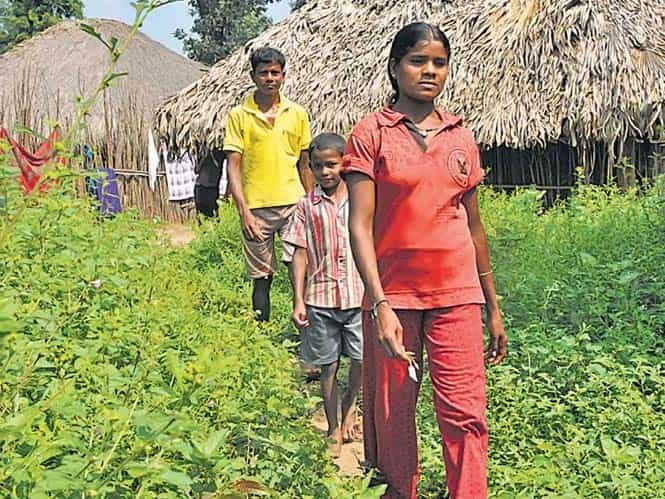Dislocated and devoid of voting rights, Chhattisgarh tribals caught in crossfire
The Maoist-hit region of Chhattisgarh goes to polls on Nov 11. But thousands of tribals caught in the crossfire between Maoists and security forces will not exercise their franchise as they have migrated to other states, fearing for their lives.
It has been six years since Madvi Deva, a 35-year-old Dorla tribal, visited his village in Chhattisgarh’s Konta district.

He wants to go back to meet his four children, his old parents and friends who still live there, but knows that it’s best to stay back at his present home: Terapad, a small village inside a reserve forest at Chintur in Andhra Pradesh’s (AP) Khammam district, that borders Chhattisgarh’s Sukma district.
There are thousands like Deva who have been forced to leave the resource-rich Bastar region of Chhattisgarh, the ground zero of the fight between the State security forces and the Maoists, because they could not endure the regular physical and mental harassment at the hands of both.
And on November 11, when the region’s 12 seats go to vote, these migrants, conflict-induced internally displaced people (IDP), in UN parlance, will not have a chance to exercise their constitutionally guaranteed right.
“Life was comfortable in Kholaigura but everything changed when Salwa Judum (SJ) was started in 2005. We were caught between the SJ’s special police officers (SPOs) and the Maoists,” Deva, who has voted only once in his life in 2001, told HT.
Salwa Judum was initiated as a state response to Maoism. Around 3.5 lakh tribals — Koyas, Dorlas, Halwas, Bhatris, Murias and Marias— have been affected. In 2011, the Supreme Court declared the militia illegal and unconstitutional, and ordered its disbanding.
Caught between the SJ and the Maoists, Deva’s wife was keen to move to a safer place for a few months. They walked about 40 km from Kholaigura to Dornapal, where the government had set up a SJ camp. Once they reached the camp, the SPOs told them to stay back.
After a few weeks, they went back to their village to check on their belongings and family and the Maoists caught them. Accusing the couple of being SJ spies, they were “arrested” and confined in the village for five days. A few days later, the SPOs raided the village and took them back to Dornapal.
By then, Deva and his wife were fed up and feared for their life. They decided to move to a safer area and decided on Chintur where their relatives had earlier migrated for similar reasons.

While there is no government record of the number of tribals displaced due to civil strife in the state, some rough figures are available. According to press reports, there are 50,000 such people in Khammam alone.
A survey done by the AP government and the Agriculture and Social Development Society (ASDS), an NGO, in 2008, showed 16,000 people in the district in 203 settlements of which 100 are in forests and 103 in revenue areas.
“Our study focused on Khammam. But tribals have migrated to Karimnagar, Warrangal, East and West Godavari districts and border districts of Orissa also,” said Gandhi Babu, director, ASDS.
Even though there is peace, life in AP is not easy for migrants. Most of them have no identification documents and so cannot access the welfare programmes. It is illegal to live and farm in reserve forests, like Deva does. His ‘village’ has been burnt down four times by the forest department and he has no hope of getting legal rights of the land he is cultivating today.
“A couple of months ago, officials from Dantewada visited the settlements in AP to bring IDPs,” said Congress MLA from Konta, Kawasi Lakhma.
“But the migrants refused to come back, saying that they would not go back even if they get free food. If the Congress comes to power, we will bring them back,” the three-time MLA added.
Raghu P, regional manager, Andhra Pradesh, ActionAid India, which works on the issue, feels that the Chhattisgarh government’s much flaunted food programme has little meaning because there are so many people like Deva have no means to access it.
“Any programme that fails to feed its most-vulnerable population cannot make such tall claims,” he told HT.





